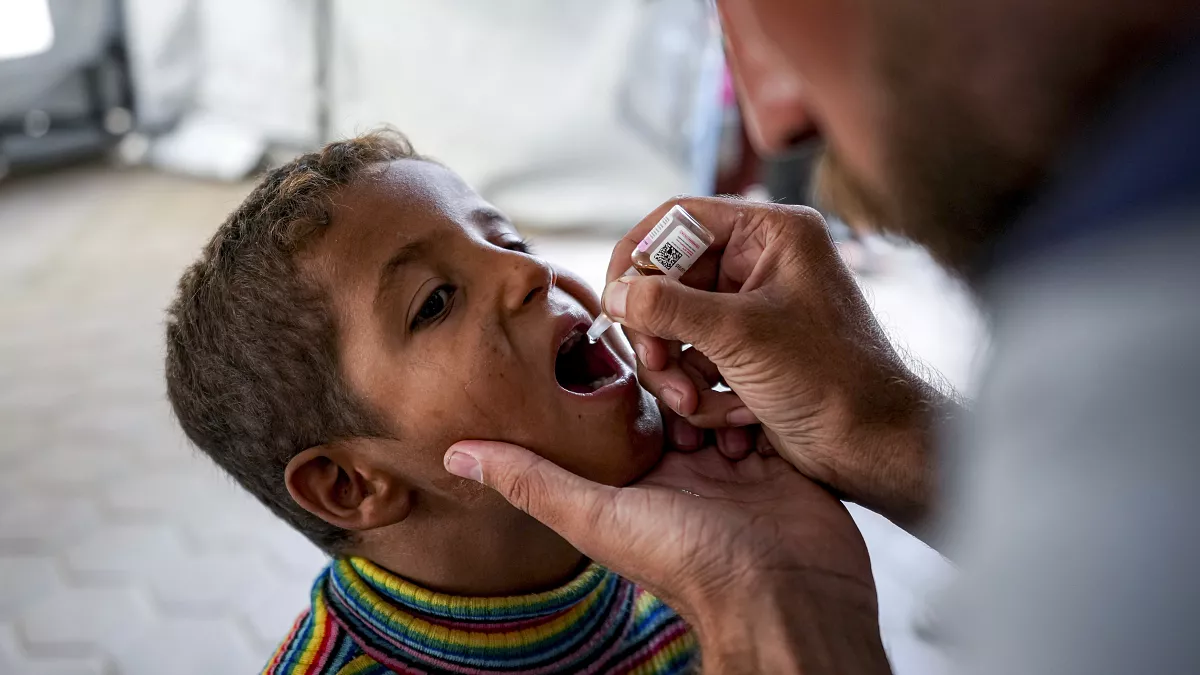The second round of the emergency polio vaccination campaign begins today, October 14, 2024, targeting approximately 591,700 children below ten with a second dose of the novel oral polio vaccine type 2 (nOPV2). The first round was implemented on September 1-12, 2024, during which post-campaign monitoring reported that 559,161 children were vaccinated, representing nearly 95% of the targeted population.
Reports indicate that the campaign is part of the drive against a polio outbreak detected in Gaza on July 16, 2024. The Palestinian Ministry of Health leads the campaign in collaboration with other partners, including WHO, UNICEF, and UNRWA. From the first round, it was proven that at least two doses of nOPV2 are needed to prevent this virus’s transmission to vaccinate more than 90% of the eligible children to ensure adequate coverage.
This is done in three rounds, each containing active vaccination days and a catch-up day. In this round, vitamin A supplement will be given concurrently with the polio vaccine to enhance general immunity among children from the age of two to nine years.
Although suffering from heavy logistical challenges like damaged infrastructure and displaced populations, the health workforce has been persistent. It went to families in shelters, camps for internally displaced people, and other hard-to-reach areas with mobile teams. Additional efforts are being made toward children and families who missed the first round of vaccinations.
Over 800 social mobilisers have been engaged to cascade the message to families on the urgency of taking the second dose and the specifics of dates and venues. Maximised throughout Gaza, there have been radio broadcasts, SMS messaging, and the use of digital platforms.
Logistical and programmatic support was prepared for the second round. It involved training health workers, availing vaccine supplies, and deploying mobile teams for remote coverage. In the last two months, an estimated 1.6 million vaccine doses have been accompanied by necessary equipment such as refrigerators, freezers, ice boxes, and vaccine carriers to keep the vaccine at the required temperature.
A significant element of the campaign’s success remains the humanitarian pauses that allow vaccination teams to work safely and families to access health services without the threat of conflict. However, the challenge remains in trying to reach children in areas outside the pauses since those areas were not covered in the first round. Coordination and approvals would be necessary to ensure that every child, regardless of location, is vaccinated.
Reiterating its call to all parties, the WHO and the UNICEF urged the conflicting parties to respect the humanitarian pauses. After recent evacuation orders in north Gaza, entry into health facilities increasingly stands at risk, wherein children and even health practitioners are placed in danger. In their calls for protecting vaccination teams, these organisations underscored that the campaign must be conducted safely and must have the ability to continue securing the health and future of children in Gaza.
For more reporting like this, please follow Newsdecensored on your favorite social media sites and bookmark the website. Thank you for your interest and support.















